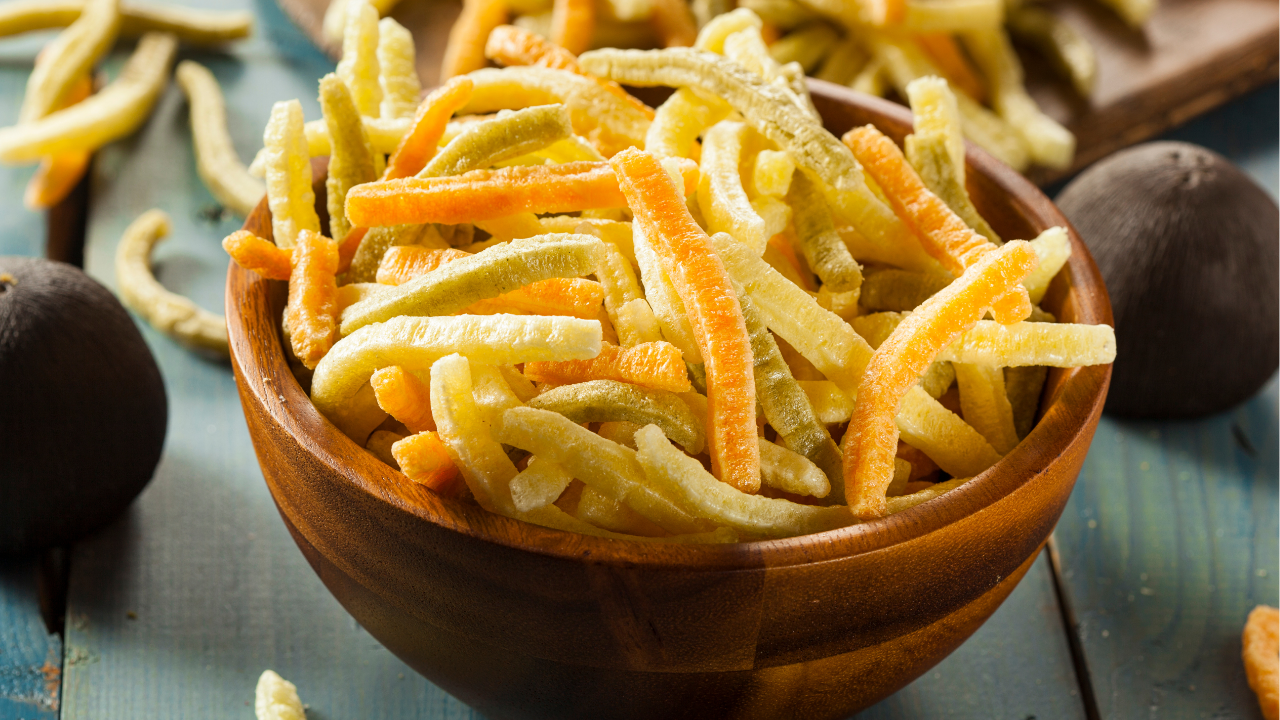Veggie straws are a popular snack option that many people turn to as a healthier alternative to traditional potato chips. However, the question remains: Are veggie straws actually good for you? To answer this, we need to look at various aspects of their nutritional value, ingredients, and overall impact on health.
Are Veggie Straws Good for You?
1. Nutritional Content
Veggie straws are often marketed as a healthier snack because they contain vegetable ingredients. They typically contain fewer calories and less fat compared to regular potato chips. However, the actual nutritional benefits can be limited.
Most veggie straws are made from a blend of potato starch, potato flour, and various vegetable powders. While these ingredients provide some nutrients, the overall nutritional content is not significantly higher than that of regular chips. The processing of these ingredients often strips away many of the natural vitamins and minerals found in whole vegetables.
2. Calorie Count
Veggie straws generally have a lower calorie count per serving than traditional potato chips, which can make them an appealing option for those trying to manage their weight. A typical serving of veggie straws contains around 130 calories, whereas a serving of regular potato chips can have up to 160 calories or more.
However, it’s important to note that the difference in calorie count is not substantial enough to make a significant impact if consumed in large quantities. Portion control remains crucial, as it is easy to overeat any type of snack, including veggie straws.
3. Fat Content
One of the primary reasons people consider veggie straws to be a healthier option is their reduced fat content. Veggie straws often contain less fat than traditional chips, which can be beneficial for those looking to reduce their overall fat intake.
Despite this, veggie straws are still fried snacks, which means they contain unhealthy fats, albeit in smaller amounts. The type of fat used in frying can also be a concern, as some veggie straws may still contain trans fats or high levels of saturated fats, which are detrimental to heart health.
4. Sodium Levels
Sodium content is another critical factor to consider when evaluating the healthiness of veggie straws. Many processed snacks, including veggie straws, contain high levels of sodium to enhance flavor. Excessive sodium intake can lead to hypertension and other cardiovascular issues.
Veggie straws often contain less sodium than regular potato chips, but they can still have significant amounts. It’s essential to check the nutrition label and opt for brands with lower sodium content to minimize health risks associated with high sodium consumption.
5. Fiber Content
Fiber is an important nutrient for maintaining digestive health and promoting a feeling of fullness. Whole vegetables are a great source of dietary fiber, but the processing of veggie straws typically reduces their fiber content significantly.
While some veggie straws may contain a small amount of fiber, it is usually not enough to meet daily dietary needs. Those looking to increase their fiber intake should consider other snacks, such as raw vegetables, fruits, or whole grain products, which provide more substantial fiber content.
6. Vitamins and Minerals
Whole vegetables are rich in vitamins and minerals, but veggie straws do not retain these nutrients in meaningful amounts. The dehydration and processing steps involved in making veggie straws reduce their vitamin and mineral content.
While veggie straws might contain some added vitamins and minerals, they are not a reliable source of these nutrients. To ensure adequate intake of essential vitamins and minerals, it is better to consume whole vegetables and other nutrient-dense foods.
7. Presence of Additives
Processed snacks like veggie straws often contain various additives, including preservatives, artificial flavors, and colors. These additives can have negative health effects, especially when consumed in large quantities over time.
Consumers should be aware of the ingredient list on veggie straws packages and opt for brands that use fewer artificial additives. Choosing snacks with natural ingredients can help reduce exposure to potentially harmful substances.
8. Satiety and Portion Control
Veggie straws are light and airy, which can make it easy to consume large quantities without feeling full. This lack of satiety can lead to overeating, which negates any potential health benefits associated with their lower calorie and fat content.
To manage portion control, it is helpful to pre-portion veggie straws into single servings. Pairing them with a protein-rich food, such as hummus or yogurt, can also enhance satiety and prevent overeating.
9. Comparison to Whole Vegetables
While veggie straws may offer some benefits over traditional chips, they are not a substitute for whole vegetables. Whole vegetables provide a much broader range of nutrients, including fiber, vitamins, minerals, and antioxidants, which are crucial for overall health.
Eating whole vegetables in their natural state offers far more nutritional value and health benefits compared to processed snacks like veggie straws. Incorporating a variety of whole vegetables into your diet is essential for maintaining optimal health.
10. Overall Health Impact
Considering all factors, veggie straws can be a part of a balanced diet if consumed in moderation. They offer some advantages over traditional chips, such as lower fat and calorie content, but they are still a processed snack with limited nutritional value.
For those looking to improve their diet, focusing on whole foods and minimally processed snacks is a better strategy. Veggie straws can be an occasional treat, but relying on them as a primary snack can lead to nutritional deficiencies and potential health issues.

